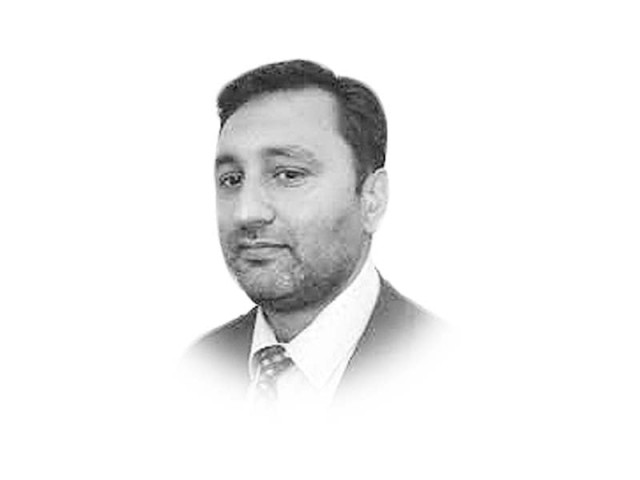Why can’t Pakistan fix education?
The fragmented education system has negative implications for upward mobility and social cohesion

The writer is a public policy practitioner and researcher.
He tweets @navift
An industry of technocrats, advocacy experts, researchers, philanthropists, data analysts and consultants of the public sector schooling system has emerged in Pakistan. Many of them have neither attended, nor are sending their children to public sector schools. So, they are unable to diagnose the fundamental flaws in public schooling and the overall education system.
Until the early 90s, there were fewer elite schools and the rest of the children from middle-class and marginalised segments would study at the same place. The quality of education was certainly not satisfactory but the children had the opportunity for mixed interactions among their peers coming from diverse backgrounds. Moreover, as many of the local influential families would send their children to public schools, they exercised some surveillance and put forward a strong demand for better quality of education.

However, due to the mushroom growth of private schools, only children of marginalised segments of society are now left in public schools. Despite the so-called experimental research, deployment of monitoring systems and the introduction of smart technologies, the quality of education in public schools has deteriorated. Academic papers and fancy reports on public schooling interventions make routine appearances but we do not see results on the ground. Families that send their children to public schools are not able to exert local influence and are powerless to demand better quality of education. Furthermore, most of the private schools that are attended by the children from the lower middle-class and marginalised segments are imparting low quality education due to the poor quality of teachers.
The fragmented education system has negative implications for upward mobility and social cohesion. There is hardly any research or dialogue on the need to reconcile this widening gap in the education system. A class-based education system can’t be a harbinger of social and economic inclusion. This has indeed led to social conflicts and tearing apart mixed interactions in the country. It is now near impossible for students of public schools to compete with those coming from elite schools and family backgrounds.
The English language continues to reinforce inequalities in educational achievements. Students from elite families enjoy studying in relatively better English-medium schools and they do gain its reward in national and international academic pursuits. But English often acts as a barrier to education and decent careers for a majority of the population.
No policymaker, politician, education consultant, bureaucrat or even a teacher of public school sends his/her children to public schools. This alienation and vote of no-confidence towards the public education system can’t be compensated with digital surveillance or increments in financial resources. Because when the powerful elite doesn’t have a stake in improving any public service that service remains marginalised as compared to the one where they have deep interests in.
There are a number of reasons leading to this gap. Firstly, teaching in a public school is not a profession of choice, especially amongst the male population. Many of the teachers are those who could not get a job somewhere else. Secondly, bureaucrats and clerks of education departments humiliate public school teachers — not to mention, the politicisation of transfers and postings. Thirdly, the public schooling system still focuses on testing photogenic memory of the kids in this age of high demand for teamwork, creativity, love for knowledge and problem solving abilities.
Fourthly, lack of affordable and safe public transport continues to deter enrollment of girls in high schools as they often travel far from villages and sprawling settlements of cities. We can see advocacy and concerns on girls’ education nationally and internationally but little improvement in transport system for them. Due to investment in a bus fleet, for example, the University of Gujrat has attracted a high number of girls from rural areas in Gujranwala. Fifthly, public and school libraries have disappeared. Elite kids still enjoy these facilities in clubs but middle-class and poor segments are deprived. Sixthly, vocational education in schools is limited and irrelevant. The dropout rate after middle and high school is high, and these students end their education without any skill in hand. There are technical and vocational colleges but the mainstream education system does not focus on employable skill development. Seventhly, resource constraints and lack of awareness about behavioural issues have a severe negative impact on student’s performance.
There is a need to challenge the fragmentation of the education system, instead of merely replicating the arguments related to enhancing allocations and monitoring with huge state machinery and smart technologies. Without addressing the fundamental flaws in the education system, the efforts will not improve efficiency of a system that is leading to chaos and inequality. A real change will only occur when NGOs for advocacy and research in education start raising finances from domestic sources instead of international aid.
Published in The Express Tribune, July 20th, 2017.
Like Opinion & Editorial on Facebook, follow @ETOpEd on Twitter to receive all updates on all our daily pieces.













COMMENTS
Comments are moderated and generally will be posted if they are on-topic and not abusive.
For more information, please see our Comments FAQ